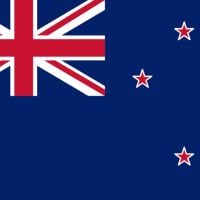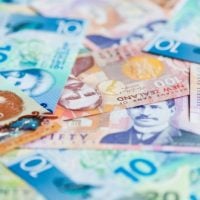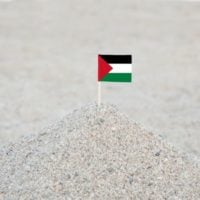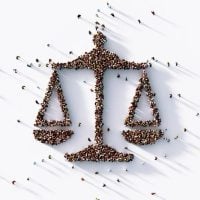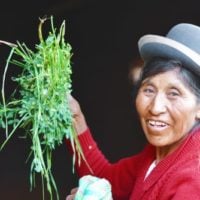Deadline: 2 July 2020
The U.S. Department of State Bureau of Democracy, Human Rights, and Labor (DRL) announces an open competition for organizations interested in submitting applications for projects that promote transparent and accountable governance in the Indo-Pacific region.
Applicants are strongly encouraged to form consortia that span traditionally independent efforts, institutions, and areas of expertise, and must demonstrate partnerships with local networks and groups already working to address these issues as well as the ability to engage government representatives and entities in the region to facilitate effective coalition-building and joint-action across stakeholder groups.
Applicants must demonstrate how their proposal advances a shared vision of a free and open Indo-Pacific through meaningful partnerships with other governments, private-sector, multilateral institutions/public international organizations, or other non-governmental entities, including through additional financial or in-kind support for the project. Competitive applications will include support for workshops that could be conducted with the substantial involvement of DRL and through mechanisms such as the Global Cooperation and Training Framework (GCTF) administered by the United States, Taiwan, and Japan, or other similar mechanisms in cooperation with the Republic of Korea, Australia, New Zealand, or other countries and include follow-on activities from the workshops. Project design should allow for public recognition of U.S. government funding and for the U.S. government to be substantially involved in public events or other appropriate activities to highlight U.S. government support for sound, just, and responsive governance.
Projects should achieve impact that leads to specific reforms and should have the potential for sustainability beyond DRL resources. Programs are encouraged to avoid duplicating past efforts by supporting new and creative approaches, but DRL will not exclude from consideration projects that improve upon or expand existing successful projects in a new and complementary way. Programs should seek to include groups that can bring perspectives based on their religion, sex, disability, race, ethnicity, and/or sexual orientation. Programs should be demand-driven and locally led to the fullest extent possible. DRL also requires all of its programming to be nondiscriminatory and expects implementers to include strategies for integration of individuals/organizations regardless of religion, sex, disability, race, ethnicity, and/or sexual orientation.
Where appropriate, competitive proposals may include:
- Opportunities for beneficiaries to apply their new knowledge and skills in practical efforts;
- Solicitation of feedback and suggestions from beneficiaries when developing activities in order to strengthen the sustainability of programs and participant ownership of project outcomes;
- Input from participants on sustainability plans and systematic review of the plans throughout the life of the project, with adjustments made as necessary;
- Inclusion of vulnerable populations;
- Joint identification and definition of key concepts with relevant stakeholders and stakeholder input into project activities;
- Systematic follow up with beneficiaries at specific intervals after the completion of activities to track how beneficiaries are retaining new knowledge as well as applying their new skills.
Activities that are not typically allowed include, but are not limited to:
- The provision of humanitarian assistance;
- English language instruction;
- Development of high-tech computer or communications software and/or hardware;
- Purely academic exchanges or fellowships;
- External exchanges or fellowships lasting longer than six months;
- Off-shore activities that are not clearly linked to in-country initiatives and impact or are not necessary per security concerns;
- Theoretical explorations of human rights or democracy issues, including projects aimed primarily at research and evaluation that do not incorporate training or capacity-building for local civil society;
- Micro-loans or similar small business development initiatives;
- Initiatives directed towards a diaspora community rather than current residents of targeted countries.
Funding Information
- Funding Floor: $1,500,000 (of which, $500,000 must be for activities in South Asia and $1,000,000 must be for activities in East Asia and the Pacific)
- Funding Ceiling: $3,000,000 (of which, at $1,000,000 must be for activities in South Asia and at least $1,000,000,000 must be for activities in East Asia and the Pacific; the remaining $1,000,000 is available for activities across the Indo-Pacific region)
- Anticipated Number of Awards: Approximately 1 – 2
- Period of Performance: 12 – 30 months
- Anticipated Time to Award, Pending Availability of Funds: 3 – 5 months
Eligibility Criteria
- DRL welcomes applications from U.S.-based and foreign-based non-profit organizations/nongovernment organizations (NGO) and public international organizations; private, public, or state institutions of higher education; and for-profit organizations or businesses. DRL’s preference is to work with non-profit entities; however, there may be some occasions when a for-profit entity is best suited.
- Applications submitted by for-profit entities may be subject to additional review following the panel selection process. Additionally, the Department of State prohibits profit to for-profit or commercial organizations under its assistance awards. Profit is defined as any amount in excess of allowable direct and indirect costs.
- The allowability of costs incurred by commercial organizations is determined in accordance with the provisions of the Federal Acquisition Regulation (FAR) at 48 CFR 30, Cost Accounting Standards Administration, and 48 CFR 31 Contract Cost Principles and Procedures.
For more information, visit https://www.grants.gov/web/grants/view-opportunity.html?oppId=327179



